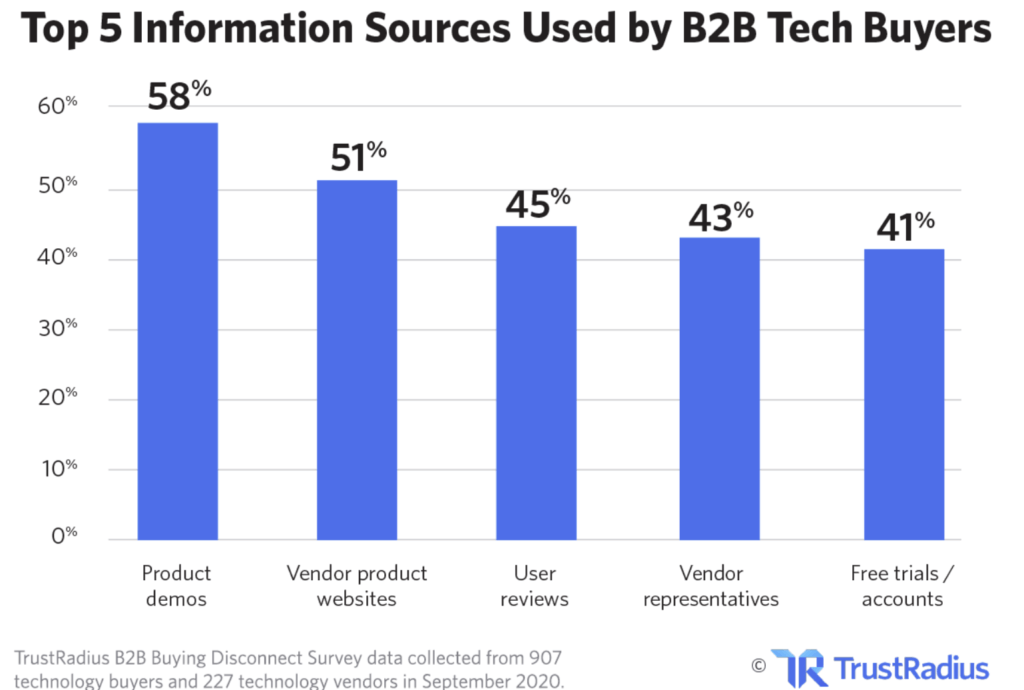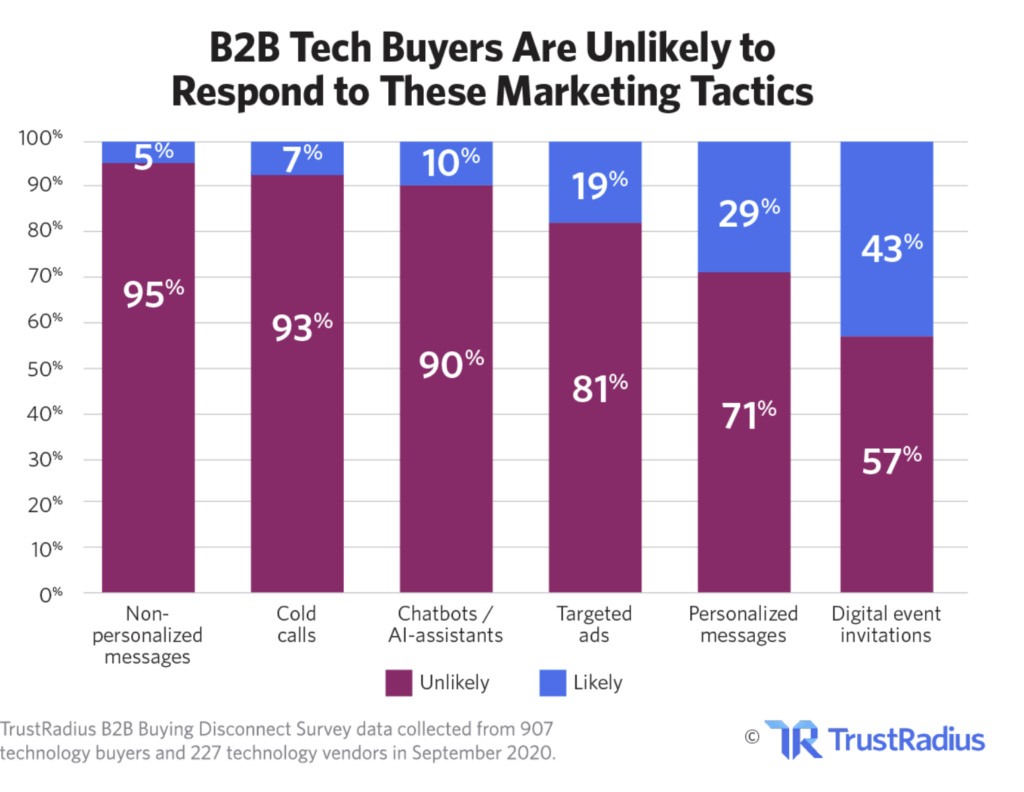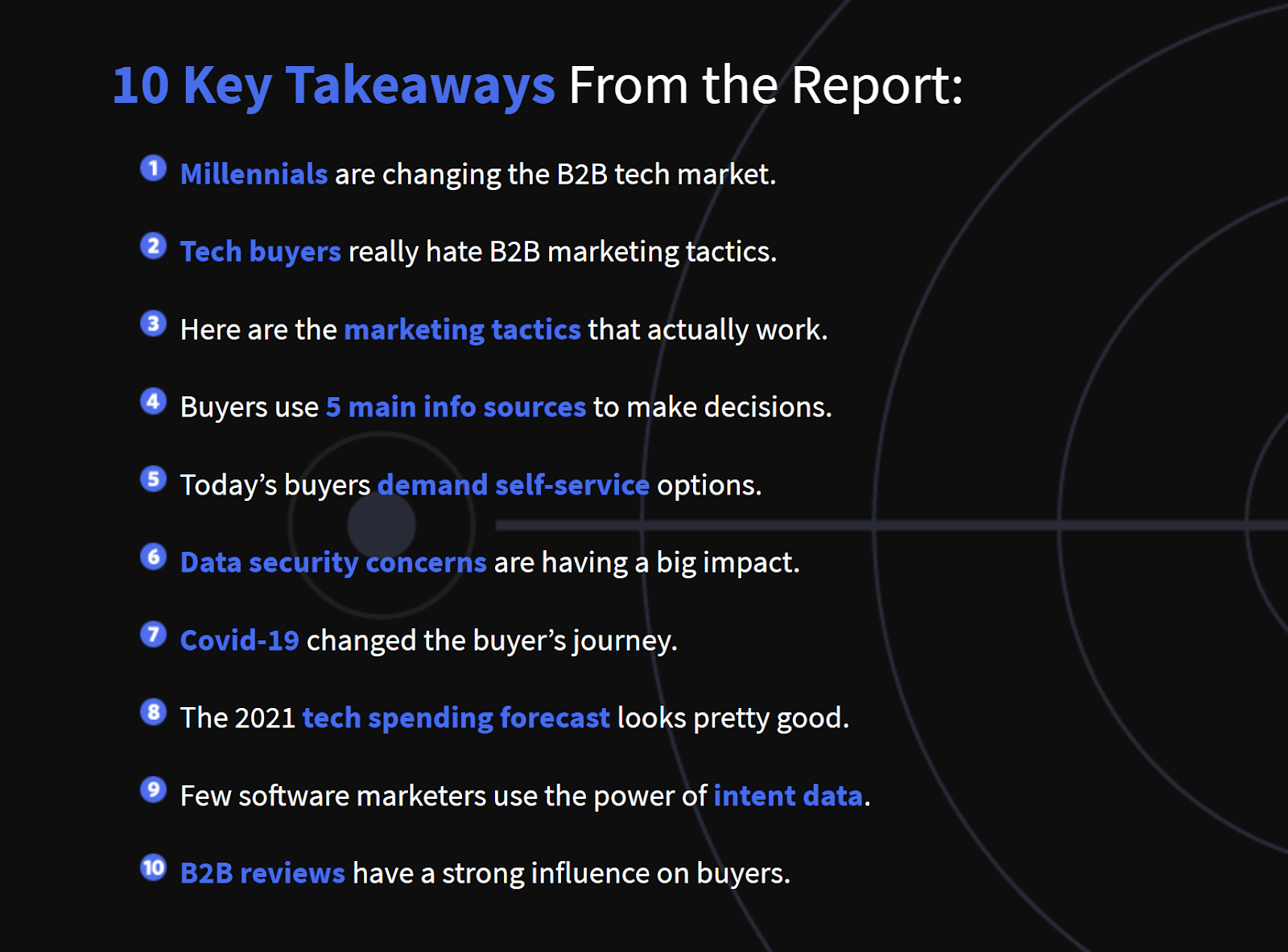B2B Vs. B2C: Differences, Strategies, and Tools for Success
All businesses have conventional knowledge of how they “should” be operating. This is true for B2B and B2C organizations. Despite this, there are substantial differences in how the two types operate. Just as importantly, there are areas where they can learn from each other. Whether your organization focuses on B2B or B2C, understanding the differences between the two is vital. Doing so will help you generate the most effective strategies for your company.
B2B Vs. B2C: What are they?
To start with the baseline definitions: B2B refers to business-to-business, while B2C refers to business-to-consumer.
B2B companies largely deal with work between organizations. They offer their goods and services to collections of people, whose purchase decision is determined by someone looking to address ar professional use case. A perfect example is human resource management software. No individual consumer will be buying a license to Bamboo HR to use at the weekend when they are home.
B2C has a focus on selling directly to consumers. Organizations focusing on B2C market directly to individuals instead of organizations. The types of organizations are endless and sell the things people use in their everyday lives. If you are reading this on a phone, that is a perfect example of a B2C product. The laptop this is written on is an example of a blend, as it is a consumer product sold to a business.
How is B2B Similar to B2C?
While B2B and B2C businesses do have significant differences that will impact how they do business, there are important similarities. One of the most important is to remember the people behind the buying process.
No matter the size of the company, buying decisions are made by real people. These individuals have feelings and need to be treated well for an effective strategy. When asked “what’s the difference between B2B and B2C marketing or selling”, some would say effectively nothing.
B2B vs B2C creates visions of a direct dichotomy, but the marketing strategy and expertise required to effectively hit the target audience has many similarities. Retailers use many of the same tricks for driving purchase decisions as their suppliers do to them. While the differences are outlined, remember that human emotion, customer satisfaction, and product quality are vital no matter the industry. Doing so in a manner that creates client loyalty and falls within ethics standards will be a winning strategy for both B2B and B2C.
How is B2B Different From B2C
Despite the human nature of both sales processes and company focuses, there are differences that will impact how your organization operates. These are some of the most important things to remember when making your decisions.
Purchase Scope: People and Cost
B2B business purchasing decisions tend to be larger than individual ones. While companies make smaller buys, the ceiling is nearly limitless. An enterprise-size company buying a new software could spend tens or hundreds of thousands of dollars. Larger companies have the ability to drop 50k with relative ease. Unless you are dealing with the very top 0.1% of consumers, this is unlikely to be the case in the B2C world
As a result of this, the buying process tends to be longer and requires more information for the purchasing party. You will need to get the purchasing decision-makers to engage with you over a long, drawn-out process.
Often, the people you are targeting are not the people that will be using the product. HR, acquisition teams, and buying committees often do the job of making these decisions. For this reason, you will have to be able to adapt to the people you are selling to quickly.
B2C sees more traditional forms of advertising, including billboards and TV, that simply are not largely present for B2B. You rarely see HR management software on your football teams broadcast.
In a B2B environment, they likely know what they need, and you will be persuading why your product will work for them. This touches on the next important difference between B2B and B2C
Marketing
Despite the audience of both types being people at heart, B2B and B2C marketing are very different experiences.
In B2B, the organization you are selling to is more likely to have a good idea of what they are looking to purchase. B2B sales decisions tend to require more data and focus on business benefit, given both the scale and costs associated. Where B2C customers can be driven by the news cycle, B2B is driven by the business cycle.
All of these factors change the way that companies market to their targets. B2B still uses social media, but this is more about awareness building and PR. In B2C, social media and influencers generate huge sales themselves. These types of marketing are great at eliciting a need response and other emotional drivers. In B2C, these can be enough to drive a customer to purchase. B2B purchasing is generally too long, too pricey, and has too many moving parts for this to be as directly effective.
The long purchase decision means marketing becomes a much longer process. As mentioned, B2B purchases can take months. This means the vendor will likely be engaged in two-way communication with a prospective buyer for an extended period of time. This is rare in B2C marketing.
Customer Information Gathering
Something that both causes and stems from this drawn-out process is the difference in information provided to the customer. B2B decision-makers will generally want far more information about a product or service they are buying than a B2C environment would need. As a result, sales teams need to be extraordinarily knowledgeable about what they are selling.
Beyond sales, the whole buying process has to be shaped for this higher bar for product knowledge. The 2021 TrustRadius B2B Disconnect report detailed some of these information sources in the tech sector.

As we can see, product demos are a huge part of the information B2B buyers want. Largely, they trust their own experiences and want to see how software may work for them. If they can’t try it themselves in a free trial or demo, they often want to know how others feel. This is where the power of reviews comes in.
In summary, B2C relies on advertising, because few of its customers are going on an information journey. You show them a product and try to quickly persuade them of a need and cost-benefit value. B2B requires far more information.
Some B2B Methods are Ineffective
Our research at TrustRadius shows that buyers in the B2B world dislike some of the strategies used by B2B sales teams. The 2021 B2B Buying Disconnect highlights some of the least liked marketing methods.

The project also found the buying audience to be trending younger and becoming more reliant on reviews and self-service options. As millennials age, they are making more and more of these purchasing decisions in company environments.
Overall, the B2B Disconnect paints a picture of what does and does not work for B2B tech companies. For those interested, click here to read the full report
 .
.
B2B and B2C Tools for Success
Whether you work in B2B or B2C, there are a number of tools available to you to help your organization achieve its goals. While in no way comprehensive, below is a list of some of the categories of software, what they do, and how they can help you
Software for B2C and B2B
While most of the software below can be used by both types of organizations, these are especially flexible.
Customer relationship management (CRM) software is a fantastic way of improving any type of buying experience. B2C will particularly enjoy the sales automation and order processing features. B2B companies can use lead generation and scoring to find potential customers. This is particularly useful if your organization works in a niche market. Pipedrive, HubSpot CRM, and Salesforce are popular choices here.
B2B tools
Content Management software works by helping with the creation, distribution, and management process of the content you need. Content marketing is fantastic at developing long relationships and trust with customers. With the drawn-out sales process discussed earlier, this is incredibly helpful for B2B customers. Conductor Searchlight and Pathlight are two Top-Rated products in this category. These are ideal for managing blogs and product pages with a more pleasing user experience.
Search Engine Marketing tools will help with the important awareness aspect of B2B marketing. Google Ads and Microsoft Advertising are two of the Top-Rated products in this category. The primary goal of these services is to drive people to your website. Once there, the opportunities are varied. You can use product demonstrations, reviews, and other methods to build trust and start establishing that relationship. No matter how good your content is, it doesn’t matter if it is never found.
B2C Tools
eCommerce platforms allow you to take the power of your store online. If you do not already have an online shop, this tool can broaden your audience and sales potential. These tools add another purchasing avenue to your customers. They also make it easier to buy quickly, making emotional and impulse-driven advertising potentially more effective. BigCommerce is a popular choice.
Appointment scheduling software does largely what the name suggests. These tools will help your customers book their time with your organization to best receive your good ro service. This could be a landscaping consultation, dentist appointment, or car repair. Calendly is one of the most common choices used.
More B2B Information
For more information on B2B buying and the disconnect between buyers and vendors, check out our 2021 B2B Buyers Disconnect report. For those in the tech sector and beyond, it will help you better understand what your buyers are thinking and how to target them better.
Those new to B2B marketing should check out the video below. This hour-long discussion from LinkedIn goes over the fundamentals of B2B marketing, its strategy, and more.
Was this helpful?
